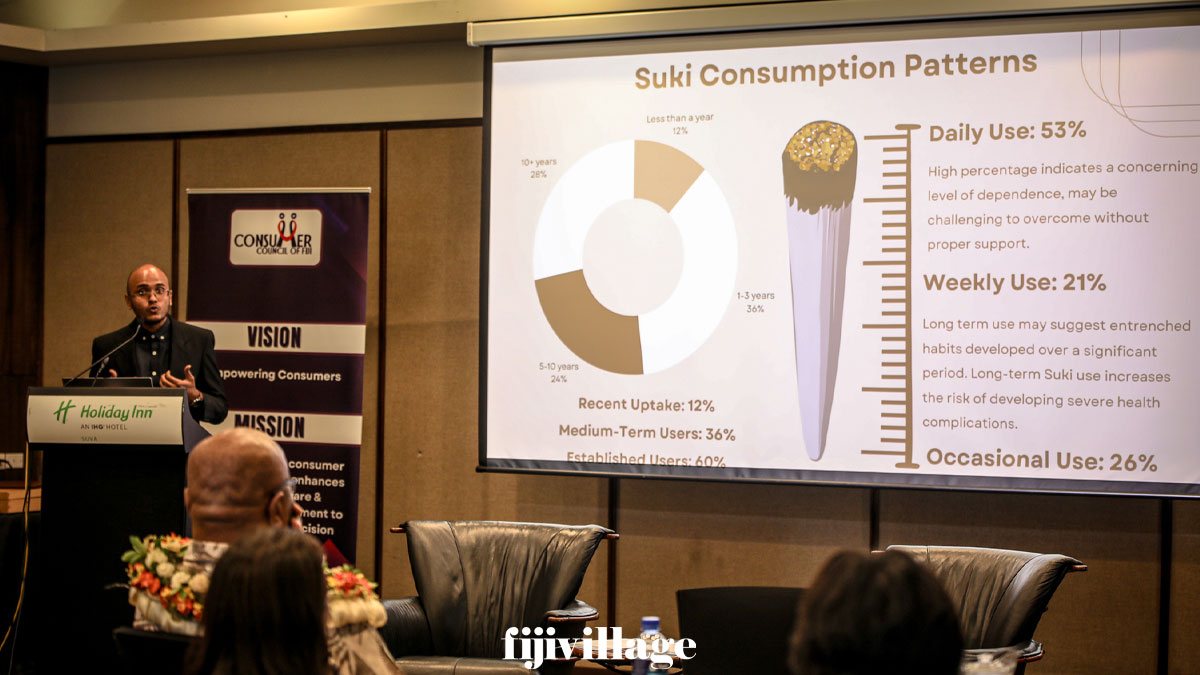
The suki report launched by the Consumer Council of Fiji shows that 26 percent of suki users are between the age of 25 to 34-years-old which is the largest proportion followed by 21 percent of users between the age of 35-44-years-old, 19 percent between the age of 45-54-years-old while 18 percent users are 55 and above and 16 percent users between the age of 18-24-years-old. The survey results also show a significant gender disparity in suki use, with 70% of respondents being male and 30% being female. According to the report higher prevalence of suki use among males suggests a potential association with masculinity or social norms.
The report also highlights that the largest group, 36 percent of people have been using suki for 1 to 3 years due to a shift from cigarettes or experimentation while 12 percent of the respondents started using suki within the last year and 60 percent are established users.
Some of the impacts of suki consumption reported are Health Consequences, Economic Burden, Social Impacts, Workplace Productivity and Life Expectancy and Demographic Changes.
It says public health campaigns can challenge these norms by portraying positive images of men who choose not to use suki and emphasising the importance of health for oneself and family.
The finding in the report states that 59 percent of respondents are from rural areas which highlights the higher prevalence of suki use in these communities due to limited access to commercially manufactured cigarettes.
This is because rural areas have fewer shops selling cigarettes, which may also be more expensive, making suki a more readily available alternative and due to stronger cultural influences as certain cultural practices or social gatherings in rural communities involve the use of suki.
It says public health campaigns should be culturally sensitive and explore potential collaborations with community leaders to address suki use within the cultural context.
The report also states that some of the contributing factors to the recent rise in the use of suki is due to Economic Factors, Misconceptions about Health Risks and Social conceptions.
The report adds that addressing the implications of increased cigarette consumption requires comprehensive efforts that include education, regulation, and support for cessation programs.
Stay tuned for the latest news on our radio stations


